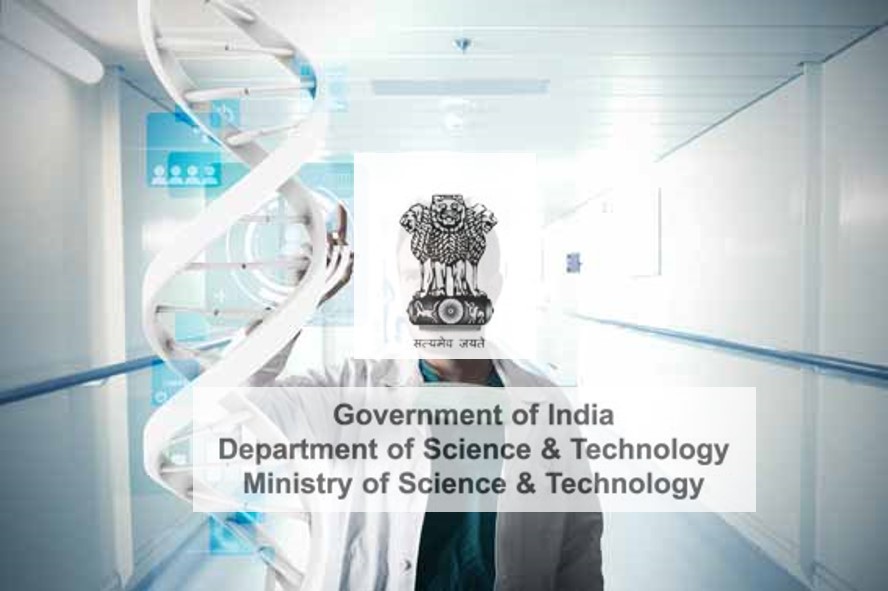
The Indian government’s Ministry of Science and Technology has unleashed a barrage of initiatives in the fight against COVID-19.
Some key efforts include production therapeutic antibodies against COVID-19 as well as exploring novel blood plasma therapy.
The Department of Science & Technology has also funded a startup to develops kits for testing asymptomatic COVID-19 infections. It has also geared up for vaccine production.
An Institution of National Importance under the Department of Science and Technology has received the official nod from the Indian Council for Medical Research (ICMR) to explore innovative treatment to patients suffering from COVID-19 disease.
Technically called “convalescent-plasma therapy”, the institute is concentrating on finding ways to use immunity gained by a recovered patient to treat a sick person.
When a pathogen, (like the novel coronavirus) infects a person, the immune system produces antibodies that identify and mark the invading virus. White blood cells are deployed by the body against the intruding virus.
The therapy seeks to harvest these antibodies from a recovered COVD-19 patient and release them into someone infected. The idea is that the new patients the immune system will get a boost from the introduced antibodies and fight the virus.
In principle, plasma therapy is feasible. However, obtaining significant amounts of plasma from survivors is difficult. This is more when co-morbid conditions like hypertension, diabetes, make harvesting ineffective.
Initially, there will be a small trial as an experimental therapy for severely affected patients only who have provided informed consent. This will be conducted as a clinical trial.
Therapeutic antibodies can be also produced in a laboratory by DNA-based recombinant technologies. Efforts are in full swing globally to produce therapeutic antibodies against SARS-CoV-2.
One such effort is being done at the University of Delhi South Campus-Centre for Innovation in Infectious Disease Research, Education and Training (UDSC-CIIDRET) with the support of the Department of Biotechnology in the Ministry of Science and Technology, Government of India.
The team is isolating genes encoding antibodies, which can neutralise the SARS-CoV-2, using a large antibody library already available in-house as well as a library made from the cells of patients who have recovered from COVID-19 infection.
Another startup, working on new biological technologies, has been funded by the Department of Science and Technology (DST), to undertake the development of Active Virosome (AV)-Vaccine and Immunodiagnostic kits for COVID-19 emergency.
The Council of Scientific & Industrial Research (CSIR) is also intrinsically involved with the COVID-19 efforts.
CSIR-Centre for Cellular and Molecular Biology (CCMB), Hyderabad has been engaged in the fight against COVID-19 on multiple fronts.
Apart from being involved in testing directly, they are also training health professionals and experts to conduct testing.
CSIR labs are also leading the way in genome sequencing of the Corona Virus and CCMB is performing Next Generation Sequencing and analysis to map out the whole genome sequence of the SARS-CoV-2 virus.
Most recently, a science-based website on COVID 19 has been launched. A multi-institutional, multi-lingual science communication initiative, `CovidGyan’ aims to bring scientific and factual aspects of this pandemic outbreak on the public domain.
Apart from being an authentic source of information, the website seeks to create public awareness of the pandemic and efforts being made to combat it.
The Indo-U.S. Science and Technology Forum (IUSSTF), has invited proposals for ‘COVID-19 Indo-U.S. Virtual Networks’.
The proposals would allow Indian and U.S. scientists and engineers currently engaged in COVID-related research to carry out joint research through a virtual mechanism, leveraging existing infrastructure and funding.
Proposals that convincingly demonstrate the benefits and value of the Indo-U.S. partnership to advance research and address critical challenges related to COVID-19 are encouraged.
















